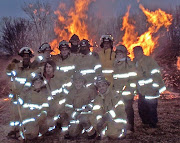Privilege, Power, and Difference by Johnson
Premise:
· Exclusion
· Rejection
· Privilege
· Harassment
· Discrimination
· Violence
· Change
· Challenge
· Society
· Privilege
· Racism
· Sexism
· Oppression
· Being able to say the words
Argument:
Johnson argues that the problem of privilege and oppression is deep and wide, and to work with it we have to be able to see it clearly so that we can talk about it in useful ways, but to do so we must first understand the language/vocabulary.
Evidence:
1. “Once we can see and talk about what’s going on, we can analyze how it works as a system. We can identify points of leverage where change can begin.”(126) This quote shows that once one learns and understands the vocabulary and can openly discuss issues of racism, sexism, privilege, etc. an act of change will have occurred. This is the beginning stepping stone to changing societies views.
2. “You don’t have to do anything dramatic or earth-shaking to help change happen. As powerful as systems of privilege are, they cannot stand the strain of lots of people doing something about it, beginning with the simplest act of naming the system out loud.” (153) I chose to use this quote because it ties Johnson’s argument together, because it discusses how an individual can simply change the perspective on privilege by saying the words out loud and admitting that they live in either a privileged or non-privileged community.
3. “Large numbers of people have sat on the sidelines…… Removing what silences them and stands in their way can tap an enormous potential pf energy for change.” (125) Johnson states that one needs to tap on the invisible glass to cause a chain reaction of change in society. This small paragraph encourages people to stand up instead of just keeping quite, again you need to speak up and say the words. Because you never know, your words may change how society approaches/ sees various issues in the community.
Comments:
This reading I felt was very similar to Johnson’s first article we read in January, he again stresses that you need to say the words. Over the course of this semester I have definitely become more comfortable saying the words that many are too embarrassed to say. Also with this reading, I feel that he explained his views more in depth, which made it easier to relate to than the first article we read. Overall Johnson made it clear that I can start a change in society by looking at my own community and finding a way to change my personal life.
Subscribe to:
Post Comments (Atom)



No comments:
Post a Comment